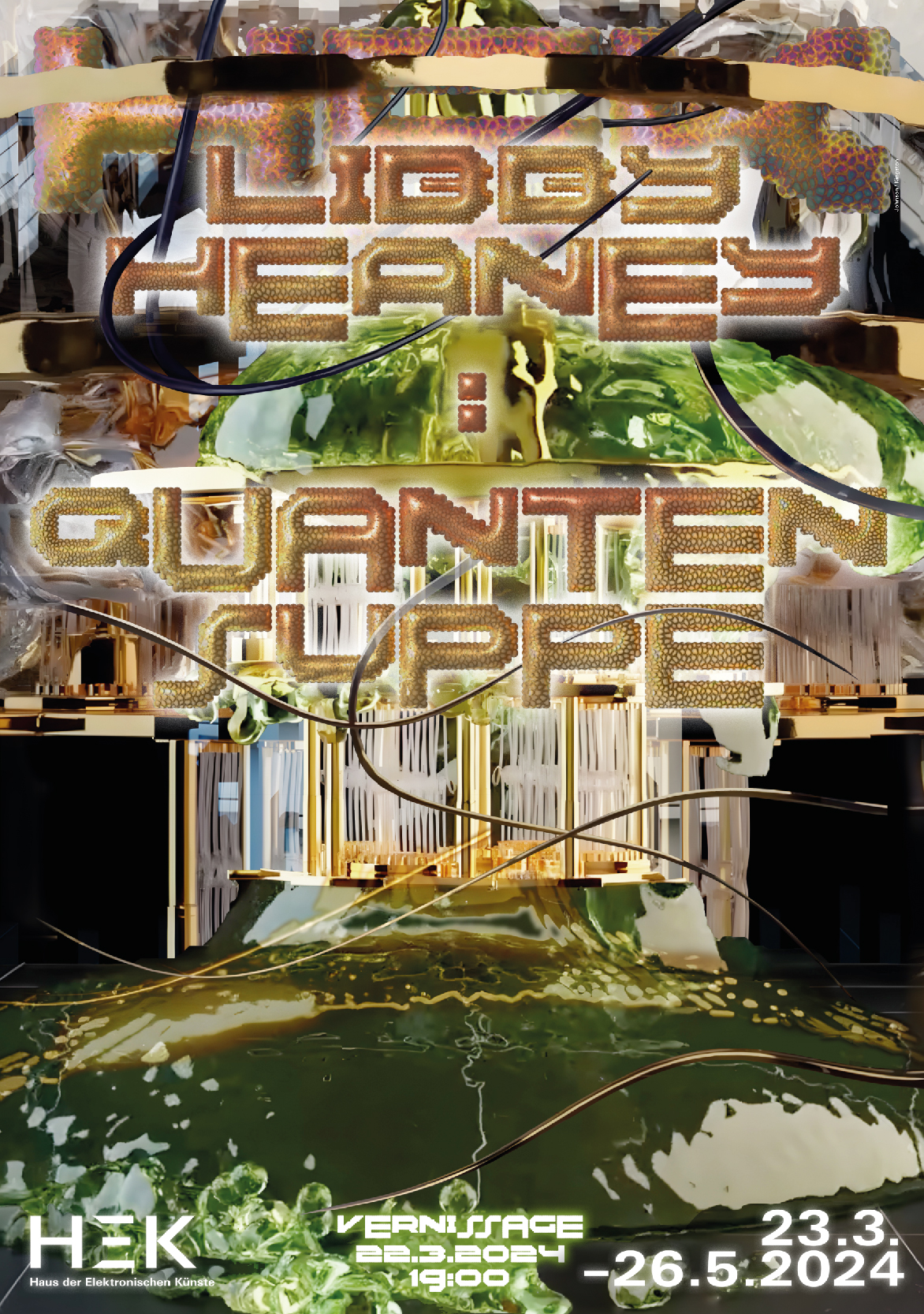
٩(◕‿◕。)۶«When investigating what any technology can and can’t do through art, I often turn to concepts from quantum physics as a way of understanding the pluralities and entanglements between technology, the world and ourselves. There are connections between facets of reality that we could never have dreamt of. I’m sure they will shift how people see and understand the world and our place in it». Libby Heaney
The exhibition Quantum Soup by the British artist and Ph.D. quantum physicist Libby Heaney at HEK (House of Electronic Arts) focuses on works created with the quantum computer, exploring its functionality and significance for society and art. The term «quantum soup» may seem ironic at first glance since it doesn’t describe anything concrete. Instead, it refers to how most laypeople might feel about the topic. They may have heard of quantum computers and quantum computing but know very little about this complex technology that is currently receiving considerable investment. This interpretation is, of course, intentional, but the exhibition title also refers to a new fundamental understanding of the world through quantum physics. This is of great interest to Heaney, who explores this theme in her works in various formats, ranging from immersive installations and game engines to watercolours, sculptural glass objects, and virtual reality. As a quantum physicist herself, she spent eight years researching the concept of quantum entanglement, i.e., the way in which objects can influence one another even if they are separated by great distances.
Heaney is considered a pioneer in working artistically with functional quantum computers, which do not operate based on the binary logic of 0 and 1, but rather on quantum bits (or qubits) capable of processing different states and possibilities simultaneously. The prospects seem almost magical when considering the exponential computational capacity of quantum computers and their potential to redistribute resources more efficiently or solve complex ecological problems. However, there is also a risk that the technology will further promote surveillance capitalism and permanently undermine our data security. In her works, the artist invites us to perceive our macroscopic world as fluid, queer, and non-binary via the microscopic quantum world and to learn to look at our material world in a new way beyond binaries and polarisation and thus perhaps develop a better understanding of our environment. What could be more important in our time?
Kuratorin: Sabine Himmelsbach
Curator: Sabine Himmelsbach
The exhibition is accompanied by an extensive educational program. Guided tours in German take place every Sunday. Guided tours in English and French take place once per exhibition. All information about the program can be found online at hek.ch.